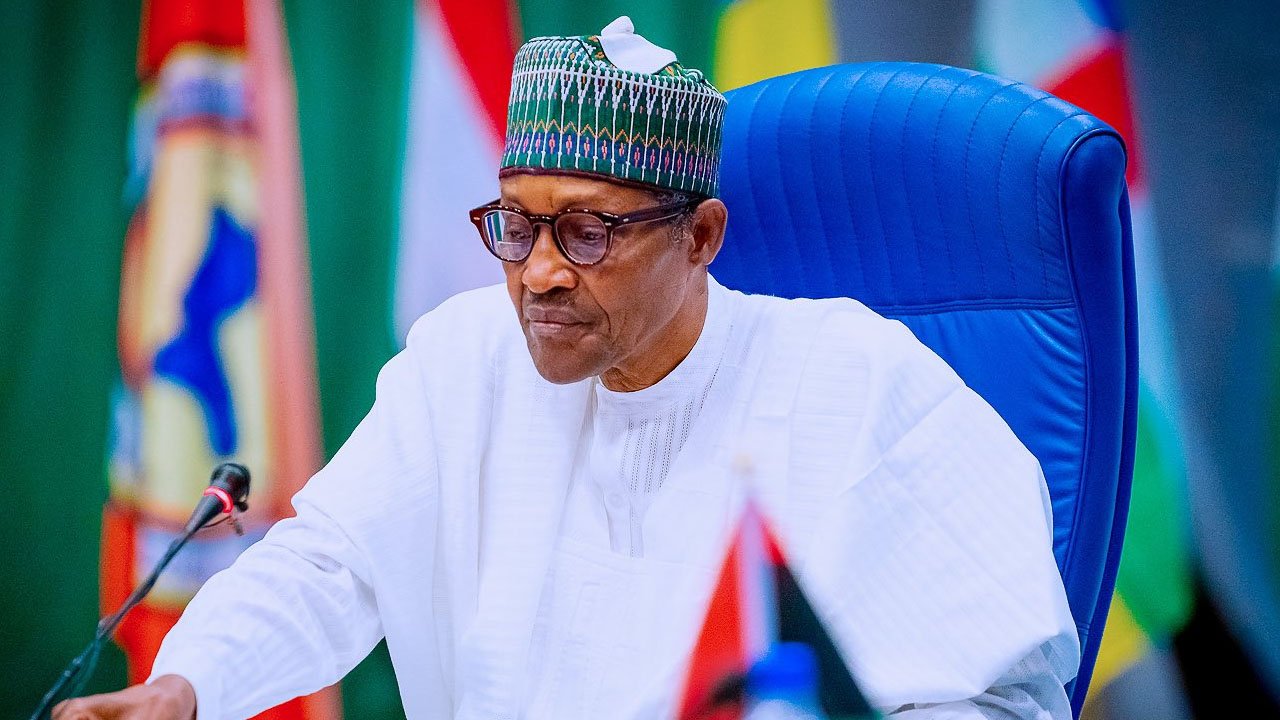Buhari’s end game: Matters arising
One of the most enduring lessons in leadership came from a dialogue session between the Lord Jesus Christ and His disciples, as recorded in Matthew 16: 13-20, when He asked them who the general public said He was. They all recounted how public opinion then on His person differed from voice to voice. He then […]

President Muhammadu Buhari
One of the most enduring lessons in leadership came from a dialogue session between the Lord Jesus Christ and His disciples, as recorded in Matthew 16: 13-20, when He asked them who the general public said He was.
They all recounted how public opinion then on His person differed from voice to voice. He then asked how they—His disciples who spent more time directly with Him saw His person.
- Call for Masari’s resignation absurd – Media aide
- 2023: Buhari, Tinubu pact not binding on APC members – Kogi governor
Here Peter answered with the truth being the revelation of Jesus as Christ the Son of God. The import of this episode lies in teaching leaders the imperative of self-check in the course of leading a group. If Jesus – as infallible as He was and is can bother to seek public judgment of His activities, it remains a play-out of sheer thoughtlessness by any mortal to do otherwise. Apparently smarting from the palpable spate of denigration of his administration across the length and breadth of the country over many of its failings—especially the debilitating state of insecurity, President Muhamadu Buhari had read the riot act to the country’s security chiefs at a meeting last Thursday. As disclosed in a press conference by the National Security Adviser (NSA) Babagana Monguno, the president at the meeting had vowed that he will not leave office with the country under the sway of insecurity, and was ready to even rejig the country’s security apparatus; which is another way to tell the security chief to shape or be shown the way out of office.
Such a strong message could not have been informed or inspired by any other consideration, other than the likelihood of his appreciation of how low the public rating of his administration has plummeted in the public domain. If that be the case then the President can as well join in singing one of the golden oldies by late Johnny Nash “I can see clearly now…”. Because, until and even with his last Thursday meeting with the security chiefs, public rating of the present administration had dropped to the possibly worst-case scenario, with a rash of centrifugal tendencies pulling simultaneously at the center and clamouring for separation of the constituent ethnic nationalities. Instructively their common grouse remains the deplorable state of insecurity across the country.
Coming down to the President’s pledge not to leave office with the country beleaguered in the grip of insecurity, raises questions in the minds of not a few discerning Nigerians on the quality of security briefings is availed him. For it is what he knows that determines what he would say or hold on to, officially. This is where the syndrome of ‘garbage in garbage out’ infects leaders who are not in tune with the administrative terrain of their watch. Many Nigerians who are closely watching the daily run of events in the country, especially from the angle of the rash and spread of insecurity situations, will readily dismiss much of the security briefs availed the President as simply compromised figments of the authors’ imaginations. Hence they take the promise to crush insecurity with only two years left in his second term in office, with a pinch of salt. Many of such observers contend that having been in office for six years and reaping an avalanche of security situations across all parts of the country, for Buhari to promise Nigerians that he will reverse the situation in just the remaining two years, qualifies as an interesting consideration. However, just as the French General and Emperor Napoleon Bonaparte was credited with the saying that “Impossible is a word that can be found only in the dictionary of fools”, Buhari’s optimism over crushing insecurity in the remaining two years can also be justified with this same logic. After all, are Napoleon and Buhari, not fellow generals?
The foregoing notwithstanding, the President’s disposition towards the security situation especially with his commitment to saving the country from any hangover security-incontinence, also gives a pointer to the end game he wishes for his administration, from now till May 29, 2023. Ordinarily, an end game that will crush insecurity in Nigeria between now and 2023, remains interesting given the humongous effort it will need to muster, and therefore qualifies to be seen in different angles by equally different mindsets. Nevertheless, from whichever angle that may be adopted to unravel it has to draw from the extant socio-political realities on the ground.
From the socio-political angle lies the version of separatist tendency which is linked with the spate of insecurity, as such enjoys expression in restiveness through armed protest. The Boko Haram tendency falls into this category. There is the other category of agitation for separation from the federation like the IPOB which the Buhari administration is electing to suppress with murderous military force. There is also the Niger Delta restiveness which is based on the region’s justified clamour for equity and social justice, but is viciously muzzled by the administration, also with military force.
In the final analysis, while President Muhamadu Buhari may have adopted an end game of crushing insecurity among other goals, he still needs to demonstrate a proclivity to reconcile himself with the socio political underpinnings of the foregoing separatist and often anomic tendencies. For in truth, given that sheer military force and battle-field engagement with these tendencies have not delivered optimally for him and the country, only the foregoing will save him from the harsh judgment of posterity, as the Nigerian leader who came, saw, but failed to conquer.
